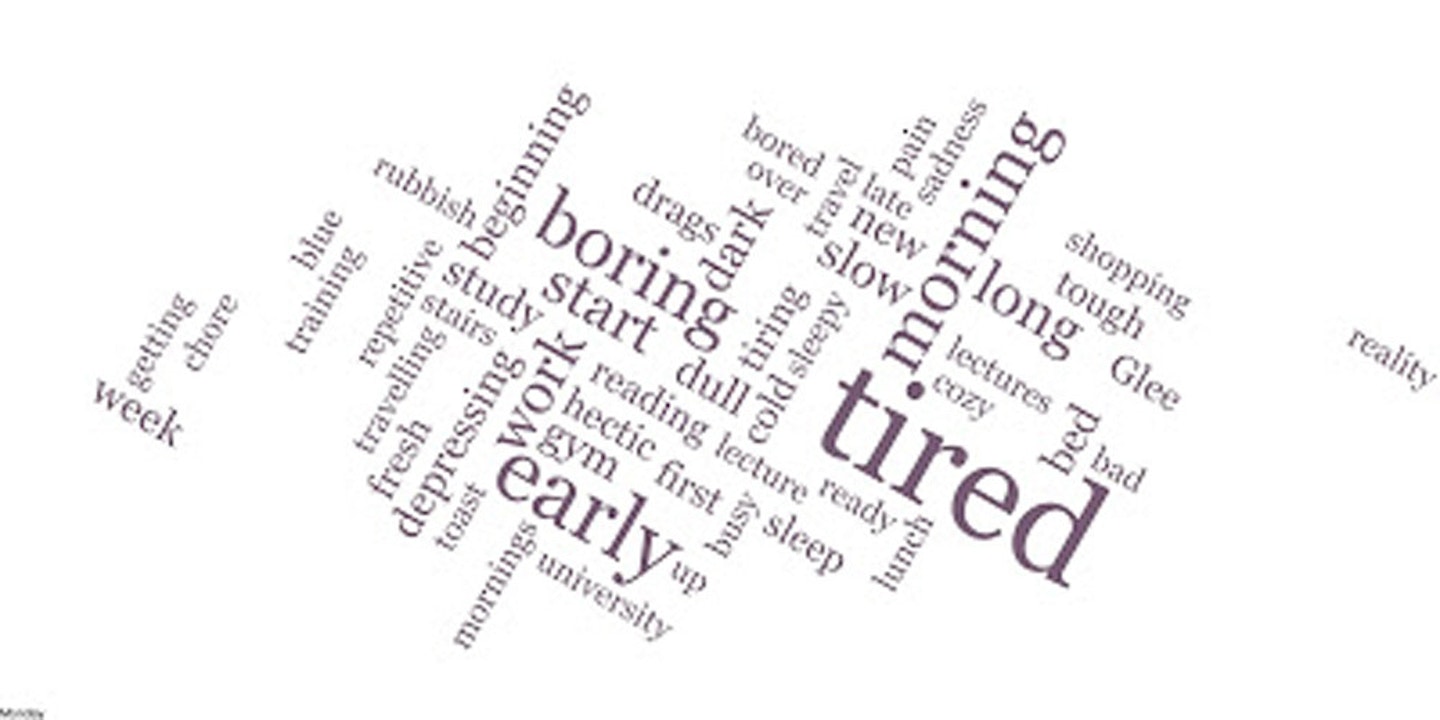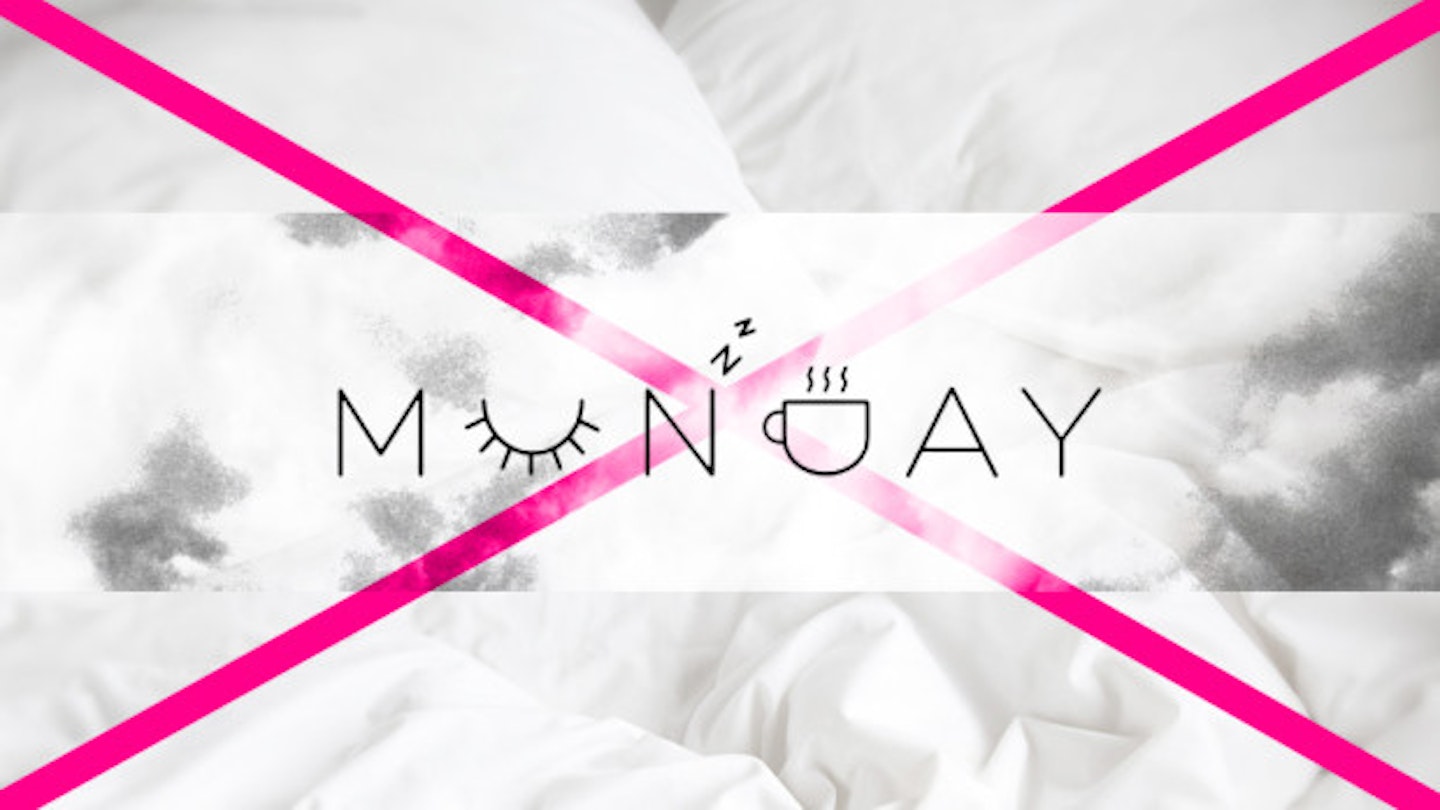Monday’s a right kick in the teeth isn’t it? You have a bangin’ weekend – all laughs and food and general good times. And then it’s Monday, the beginning of a five day slog of prematurely dragging yourself out of bed. Of calculating exactly how many episodes of Kimmy Schmidt you can fit into your evening TV-viewing schedule. Five days of trying to work out what to feed yourself every night because pile of melted cheese do not make a nutritious meal. Basically, it’s no wonder that a lot of us aren’t too fond of Monday.
Dr David A Ellis, a psychologist at Lancaster University, was the lead researcher on a study into why we find it so difficult to remember certain days of the week. ‘What you tend to find is they associate really negative things with a Monday so for example, it’s boring, hectic, they associate it with being tired, but Friday is associated with words like party, freedom and release’, he told me over the phone. So whilst Monday may not actually be the worst day of the week, many people definitely believe it to be. Interestingly, these kind of associations dip in the middle of the week. ‘When you ask participants about Tuesday, Wednesday and Thursday, they tend to draw a blank and take about twice as long to tell you it’s that day, compared to if you ask them on a Monday or Friday,’ he explained.
Dr Ellis told me that most of their reseacrh involves students, individuals whose timetables won’t necessarily adhere to Monday as ‘the start’ of the week, which makes these findings even more interesting. It's almost like there's something entrenched in us from a young age that Monday is the worst day, and will be forever. Other studies do report a similar negative reaction to Mondays: 46% of US females felt the least attractive on a Monday and on average people spend 34 minutes moaning on a Monday, compared to 22 minutes on other days.

What's interesting about the whole 'I hate Monday' thing, is that this concept of a seven day week is one that the majority of people will have been living with for their whole life – and will probably continue to live with for the rest of it. so why is Monday always such a shock to the system? Well, there's our sleep pattern for a start. On a Sunday night we change it in order to account for the week ahead. This shift is often why we sleep worse on a Sunday night, and a lack of sleep the night before is bound to make Monday pretty miserable. Of course if you hate your job that's going to make Monday a really not-fun day as well, because of the contrast to the fun you'll have had (hopefully) on the weekend.
Some research has shown that people experience more stress hormones (like cortisol and adrenaline) increase on a Monday making the risk of heart attack higher. Interestingly they observed that particpants showed a peak in these hormones even after they had stopped working, suggesting that there’s somethign internal being entrenched. Writing on his website, Dr Sinatra attributes this to the body remembering and anticipating stressful events. There's also the fact that you're more likely to have your phone stolen on a Monday.
One (very large) study effectively called BS on the concept of a 'Blue Monday'. Writing in the New York Times, one of the researchers put the typical Monday hatred down to the human tendency to have beliefs and judgements that aren’t actually in line with reality. For example, if you ask someone about a past time, the chances are they wont be able to recall every single moment, so they’ll use identifying moments to summarise the event. Like when we remember pain: we're likely to remember the worse parts and take that to represent the entire experience.
They put this down to our ‘cognitive heuristics’ – these are ‘simple, efficient rules, learned or hard-coded by evolutionary processes’ which help humans make speedy decisions or judgements in a situation, despite not necessarily being the ‘best’ option. When you apply this to the principle of people hating Mondays, we feel that way because of the marked shift in how we feel from Sunday to Monday (assuming the person works a typical work week) and it’s this change we react to negatively, rather than our actual mood that day. They call this the ‘contrast effect’.
According to The Atlantic, some people report a feeling of Monday being The Start of something new. Just like the first of January, it's seen as the day to make a change, and research shows that on a Monday people are more likely to start a diet, exercise regime or quit smoking. As well as that, health-related Google queries peak on a Monday and Tuesday, suggesting that people are more in touch with their health on those days. It's also the safest day to have an operation.
What's clear then, is the difference between our perception of Monday being bad, and the reality. It can't be denied that people don't like Mondays – that's right in front of our faces – but whether they actually are bad, is up for discussion. Saying that, surely it's up to the indvidual to decide how good or bad their Monday is? Just because one study shows that, actually, a Tuesday is worse statistically doesn't mean we're going to suddenly like out 4am Monday wake-up call. More research into the effects of the days of the week on our behaviour and action is needed – Dr Ellis told me so. In the meantime, and at the risk of sounding embarrasingly cheesy, lets all focus on making everyday pretty great.
Infographic courtesy of Dr. Ellis
Like this? You might also be interested in:
Ask An Adult: When Do I Need To Worry About Feeling Work Doom?
Follow Chemmie on Twitter @chemsquier
This article originally appeared on The Debrief.
